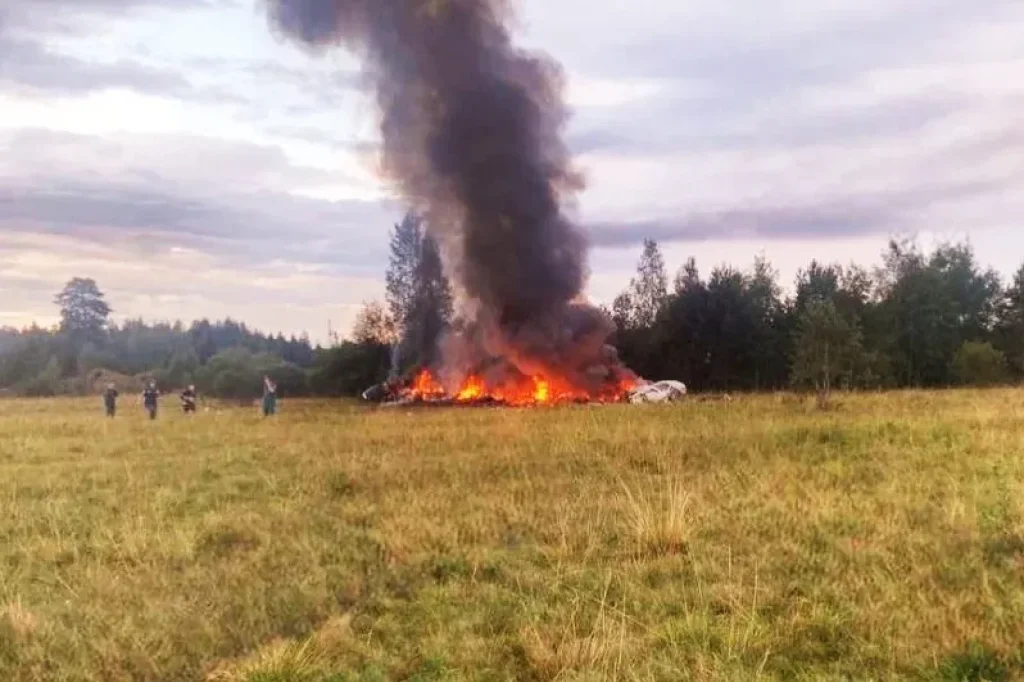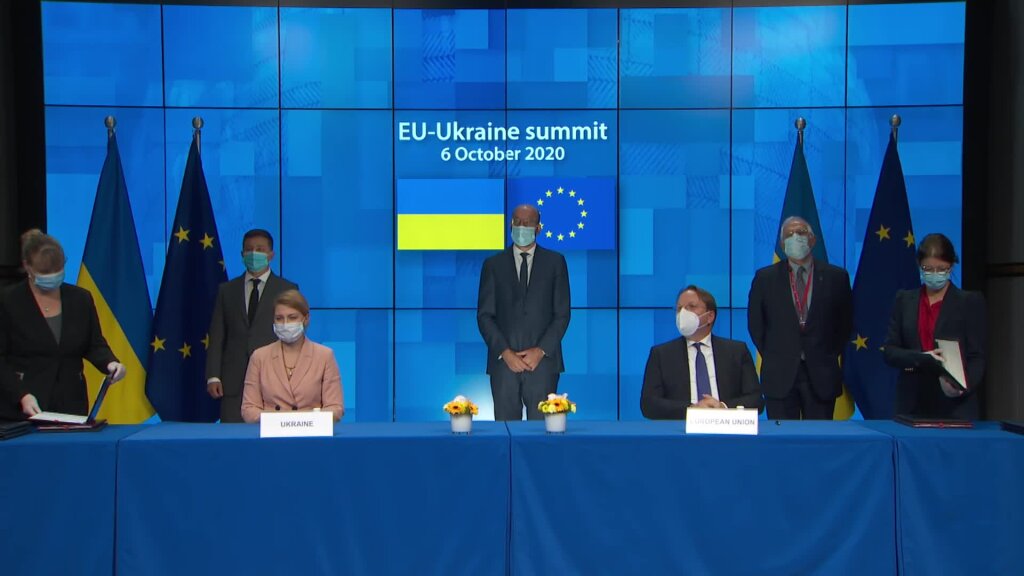This is Part II of a two-part series. Part I may be found here.
This piece originally appeared as a Policy Memo on PONARS Eurasia.
Mark Kramer is Director of Cold War Studies at Harvard University and a Senior Fellow of Harvard’s Davis Center for Russian and Eurasian Studies. This memo was completed in August 2023.
Possible Causes
A great deal of speculation has arisen about the possible cause of the incident. Embraer Legacy 600s are extremely reliable and easy-to-fly aircraft and have had only one mishap in 20 years of service. Hence, there is little reason to believe that a technical glitch brought the plane down. Video footage posted online needs to be treated cautiously, but multiple clips show the same basic thing: namely, that the Embraer plummeted to the ground after what appears to be white smoke streamed from the plane.
Some Russian military bloggers claimed that an air defense missile struck the plane (perhaps after a ground controller misidentified the Embraer as a Ukrainian drone), but close analysis of the video footage does not show a missile or other external object that might have struck the plane and caused it to plunge.
A more plausible explanation is that an explosion occurred on board. If that is the case, one possibility is that the plane was carrying a crate of ammunition that accidentally exploded. This scenario has not really come up in discussions of Prigozhin’s fate, but if investigators are allowed to do their work properly, they will be able to find out whether the plane was brought down by an accidental detonation of ordnance. Whether anyone inside or outside Russia will believe the findings is a different matter.
Another, much more dramatic, possibility is that the plane was sabotaged with hidden explosives. Prigozhin had many enemies who would have been pleased to see him dead, but access to the plane was severely restricted, and multiple inspections were conducted before the flight (contrary to initial rumors that the plane had been left unguarded). Some observers in Russia have alleged that Artem Stepanov, a former pilot who once ran the company that serviced the Embraer, may have been the culprit, but there is no convincing evidence that he was anywhere near the plane on August 23 or had any involvement in the incident.
If sabotage did occur, it is highly unlikely that whoever planted explosives on the Embraer was acting as a freelancer. The saboteur would almost certainly have been enlisted by an authoritative, top-level figure. Russian Defense Minister Sergei Shoigu and the chief of the Russian General Staff, Valerii Gerasimov, were repeatedly berated and ridiculed by Prigozhin over the past year, and the two of them have shed no tears over Prigozhin’s death. But it is doubtful that either of them would have acted against Prigozhin without Putin’s explicit approval.
Long after news of the crash emerged, Putin himself eschewed any comment, perhaps because he was trying to gauge precisely what had happened. On the evening of August 24, he finally broke his silence, saying he was “dismayed” by the “tragedy” and expressing “sincere condolences to the families of all who perished.” He praised Prigozhin as “a talented man and a talented business executive” whom he had known since the early 1990s, and he hailed Prigozhin’s Wagner Group for having made a “fundamental contribution to our common cause of battling against the neo-Nazi regime in Ukraine”—a contribution “we will never forget.” Putin acknowledged that Prigozhin was “a man of a complicated fate who made serious mistakes in his life,” but he emphasized that Prigozhin had been able to “achieve the necessary results both for himself and, when I requested it, for our common cause, including in recent months” in Ukraine.
During Putin’s 24 years in power, he has often resorted to assassinations and extralegal violence to reinforce his control of Russian politics, and it is therefore not surprising that most Russian and Western observers have assumed that he orchestrated Prigozhin’s death as revenge for the mutiny in June. Such an assumption would ordinarily be reasonable, but in this particular case it may be premature. Putin’s somber tone during his televised remarks about Prigozhin did not give the impression of a leader savoring the death of a vanquished rival. Even though Putin did not attend Prigozhin’s funeral on August 29, that was apparently because Prigozhin’s family wanted to keep it a private matter.
The Elusive Truth
Whatever the case may be, the truth about Prigozhin’s fate—whether accidental or instigated by those who wished to do him in—will probably never be known. Putin promised that an investigation “will be conducted in full and brought to a conclusion. There is no doubt about that.” Actually, there is every reason to doubt it. The Russian government’s swift rejection of help from Embraer, the Brazilian manufacturer, which had offered to send experts to assist with the investigation, was hardly an encouraging sign. Even if a thorough investigation is eventually conducted, the odds are that it will ultimately lead nowhere. Accurate details of the plane crash may well be disclosed, but there is little reason to believe that the investigators will reveal who ordered the sabotage of the plane (if that is indeed what caused the crash).
Instead, what will likely unfold is a blither of lies and cover-ups, as has happened in Russia in the wake of many high-profile assassinations, such as the murder of the opposition leader Boris Nemtsov in February 2015. The general pattern in Russia on such occasions has been that investigations are carried out, but no convincing explanations are ever offered and no high-level figures are ever held to account. This lack of accountability at high levels is common in autocratic countries. The Argentine junta’s use of aircraft to get rid of political opponents did not come to light until well after the military rulers were dislodged from power, giving way to a democratic government. China’s Communist rulers have never come clean about the Lin Biao affair half a century ago and instead have dismissed it as “old business.” There is no reason to believe that Russia’s autocratic government under Putin will be any more forthcoming about the circumstances that led to the crash of Prigozhin’s plane.



